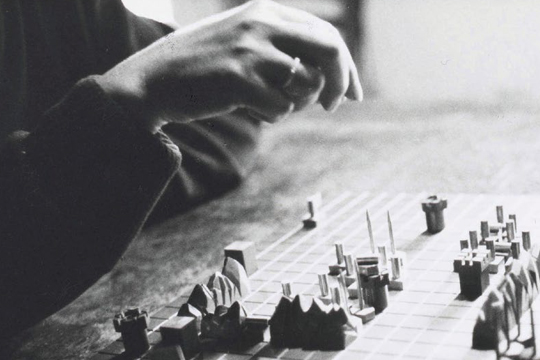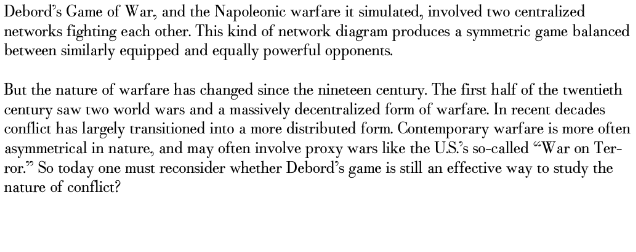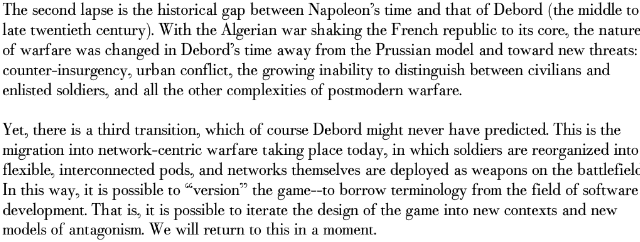
___________________________________________________________________________________________________
Following the structuralist movement of the preceding decade,
Guy Debord and Alice Becker-Ho created a conceptual strategy board game called, simply, A Game of War.
Drawing heavily from Napoleonistic strategy, the game and its text are adapted from ‘Kriegspiel’
a game used to train and excite members of the German military, and Clausewitz’ writing from the 19th century.
___________________________________________________________________________________________________

___________________________________________________________________________________________________
Contemporary theorist Alexander Galloway senses that Debord and Becker-Ho
were not able to simplify and account for key advancements introduced in wars of the 20th century.
Primarily, this would include easily delineated tactical space within the theater,
especially a strong division between ‘combat zone’and ‘communication zone.’
Airspace, with its mutable boundaries and vertical stratification, was also impossible to reduce to two-dimensional strategy.
___________________________________________________________________________________________________


___________________________________________________________________________________________________
Hito Steryrl cites Eyal Weizman by stating that "at present,
the distribution of power…has increasingly come to occupy a vertical dimension.
Vertical sovereignty splits space into stacked horizontal layers, separating not only airspace from ground,
but also splitting ground from underground, and airspace into various layers.
Different strata of community are divided from each other on a y-axis, multiplying sites of conflict and violence."
___________________________________________________________________________________________________

___________________________________________________________________________________________________
Galloway emphasizes the decentralized nature of 20th century wars and projects towards a game
in which new complications come into play, such as the possibility for each unit in the game to become a discreet
communication unit, or for “’Phase Shift’ options in which connectivity, not combat, became the operative force….
Connectivity itself would be a kind of weapon.”
What if offline units could transform themselves into ‘sleeper cells?’
What if offline units were granted additional abilities, shedding their factional loyalties
and slipping into a rogue faction of their own? New rules would have to be devised over Debord’s original game.”
___________________________________________________________________________________________________
< < < /// > > >
1 2 3 4 5 6 7 8 9 10